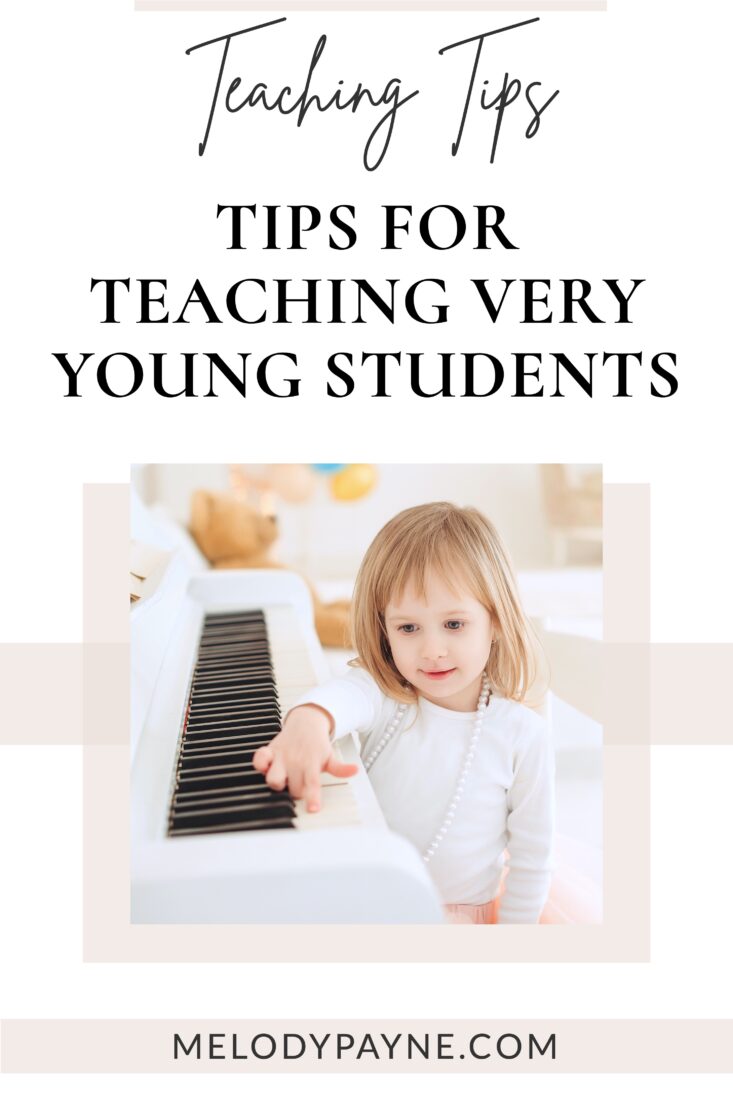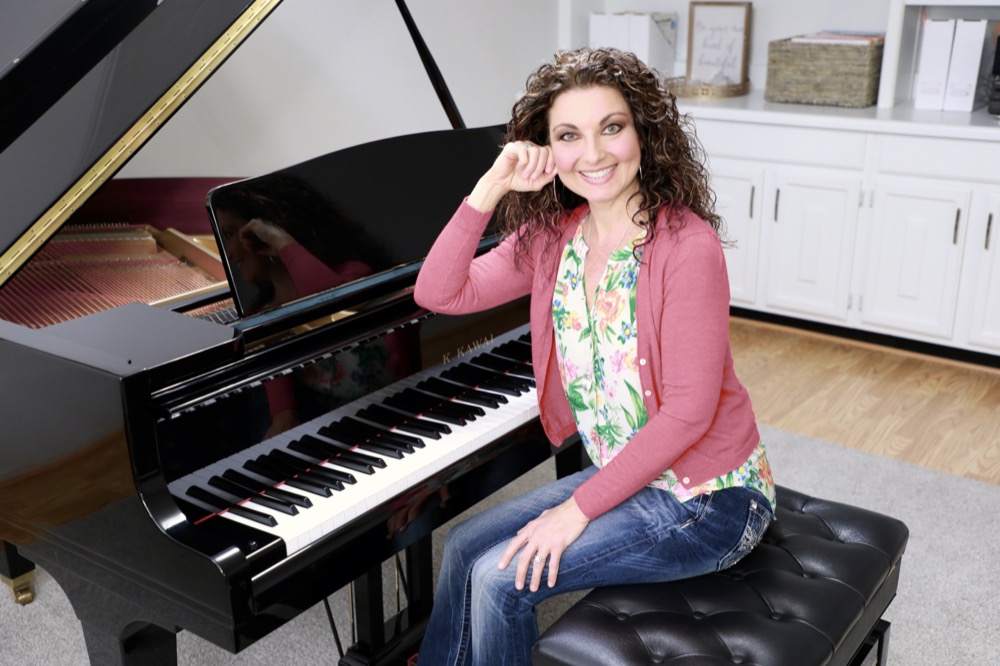Tips for Teaching Preschool Piano Students
This post may contain affiliate links. If you purchase something through an affiliate link, I will receive a small commission at no cost to you. For more information, read the disclosure statement here.
Does your piano studio include students of all ages? How about tiny little preschoolers who are full of energy, endlessly enthusiastic, and always ready for adventure? Please enjoy this guest post by Doreen Hall, and take note of this fun collection of tips and ideas she shares for teaching preschool piano students.

Preschool Piano Students
They are not like my other students. With these kids I have to be ready…for anything. They hide behind doors, and under pianos. They jump around, run around, and even dance around. They look in my purse, ask me how old I am, and how many kids I have. They call me out on everything from a gray hair to a wrinkled sweater. They don’t stay on the bench for very long, they love to flip pages, and they draw smiley faces on the music. And let’s not forget all of those “Why’s”!
So, who are these people? They are my preschool students of course, and I love teaching them! They jump with excitement, and dance with enthusiasm. They are interested in the music, and curious about everything (like when was the last tine I dusted my piano!). They are unabashedly honest, free spirited, and fearless. In other words, they are natural musicians.
I love teaching these little angels, but it is not necessarily an easy task. It takes a whole lot of patience, love, and the understanding that very young children learn differently than their older counterparts. Little hands and eyes are not ready for everything the pianist needs to learn, but little ears and hearts are like open vessels ready for the music to be poured in.
While in my experience most three and four-year-olds are not ready for traditional piano instruction, there are many skills preschoolers are ready to learn.
Preschoolers are ready to learn:
- Lesson etiquette: greeting the teacher, taking care of materials, etc.
- Concentration
- Proper posture (I recommend a foot bench and adjustable seat)
- Finger numbers (following fingering is a challenge for most preschoolers)
- The music alphabet (forwards and backwards)
- The names of the piano keys
- Treble and bass clef
- How to identify high, medium, and low notes, by sound and on the piano keys
- The names of basic note values
- Stories of great composers
- How to play along with the teacher duet-style and keep a steady beat
- How to sing simple melodies
- Solfege syllables
- How to count and clap basic rhythms
- The definition of music
- The concept of organized sound
- The concept of timbre
- Dynamics: loud vs. soft sounds
- Tempo: fast, medium, and slow music
- To listen to great music (you can guide families on this)
- How to participate in a recital (most little kids are not nervous)
- Basic improvisation
I believe a child can start learning to play the piano as soon as he/she is willing to receive instruction. Granted you may have to take a lot of breaks at the beginning, and it helps to have a parent around to guide the practice at home. The main thing is to make lessons fun and be sure that all of the grown-ups involved in the child’s piano education have realistic expectations of the importance of practicing (beginning with about 5 minutes a day).
I always keep the music in front of my preschool students to make them aware of the notation. I don’t mind the really little ones getting help from a parent, or even following some fingerings and writing in note names if it gets them playing. When I feel the student is ready, I introduce music reading. For most of my students, this coincides with learning to read words.
When working with preschool students I really like to vary the activities and keep the lesson moving along. I let the kids stand up and even walk around as needed. Many of the above activities can be “off the bench”. For example, the children can stand while singing or walk up and down the keyboard while naming the keys. (if you need ideas, check out 5 Off-Bench Activities for Piano Lessons)
Teaching preschoolers is always an adventure. Each little one is unique. Some are boisterous, some are quiet, and some run smiling into the studio, while others cling steadfastly to Dad’s leg. Each one, however, is able to learn about music. As long as a child’s first experience with piano study is a positive one, I believe it is a great advantage for children to begin piano study as early in life as possible.

More blog posts on teaching young pianists:
- 9 Essentials to Include in a First Piano Lesson
- Preschool Rhythm Activity Cards for Engaging Piano Lessons
- 5 Tips for Engaging Young Piano Students During Online Lessons
- 5 Off-Bench Activities for Piano Lessons
SaveSave
SaveSave
SaveSave
Don't miss out!
Follow on Facebook and Instagram, join the best Facebook group for piano teachers, and subscribe to the newsletter to get helpful teaching tips, resources, and tutorials delivered straight to your inbox every week.
Doreen Hall
Doreen Hall
Welcome!

Hi! I’m Melody Payne, a pianist and piano teacher, educational resource author, a fun-loving wife to the most wonderful and talented hubby I could ask for, and a lifelong learner who loves to share. I want to make your life as a music teacher easier by writing and sharing helpful and relevant music teaching articles, and by creating educational resources with your very own students in mind. If you are a parent who wants to enroll your child in piano lessons, I’d love for us to get started building those skills that can give your child a lifetime of musical enjoyment!

